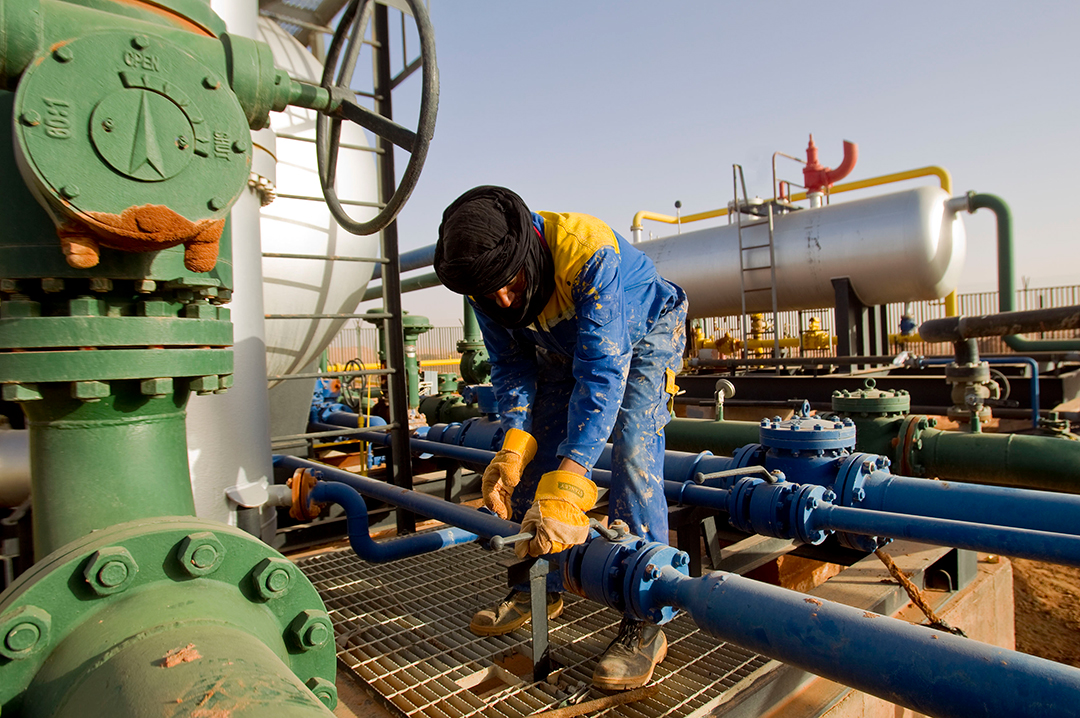As World Turns Away From Russian Energy, Africa Sees Opportunity
ADF STAFF
A new gas pipeline stretching from southern Nigeria toward the Mediterranean Sea could open Africa’s vast and largely untapped reserves of natural gas to foreign markets, creating an alternative to Europe’s reliance on energy from Russia.
The $13 billion Trans-Saharan Gas Pipeline, which has been on the drawing board for more than a decade, has received renewed interest after Russian invaded Ukraine in early March. The invasion triggered global sanctions against Russia and left much of Europe examining alternative options to meet natural gas needs.
Leaders from Nigeria, Niger and Algeria signed an agreement in Niamey, Niger, in February restarting work on the project. The pipeline would carry 30 billion cubic meters of gas 4,000 kilometers from the Warri region of Nigeria to the Algerian coast. Along the way, supporters say, it would also supply jobs and energy to communities in all three countries.
Together, the three countries control more than half of Africa’s 18 trillion cubic meters of natural gas. As Africa’s largest oil producer, Nigeria already exports liquefied natural gas (LNG) to Europe. In 2019, European countries bought 12 billion cubic meters of Nigerian gas, according to the German-African Business Association.
LNG requires ships to transport it, which can be risky in the pirate-plagued waters of the Gulf of Guinea. A pipeline would avoid that problem.
Nigeria, Niger, and Algeria signed their first pipeline agreement in 2009, but security concerns stalled it.
“Restarting this project, sends a clear message to investors, and important strategic partners in Europe and Africa, that things are changing in Africa,” NJ Ayuk, executive chairman of the African Energy Chamber, said during the signing ceremony.
The pipeline is just part of Africa’s energy export equation.
Over the last decade nearly 40% of all new natural gas discoveries worldwide came in African nations, with Mauritania, Mozambique, Senegal and Tanzania among the leaders.
Tanzanian President Samia Suluhu Hassan reported in February that the Russia-Ukraine conflict was driving interest in her country’s natural gas reserves, estimated to be Africa’s sixth-largest deposits.
Hassan’s predecessor, the late President John Magufuli, delayed for six years a proposal to build an LNG terminal in Lindi that would have let Tanzania tap 1.6 trillion cubic meters of natural gas deposits. Magufuli instead put his support behind the East African Crude Oil Pipeline that would run from Uganda to Tanzania’s coast.
Hassan said Tanzania is eager to find markets for its gas resources.
“We are looking for markets wherever,” Hassan told Africa Report. “Whether Africa or Europe or America, we are looking for markets. And fortunately we are working with companies from Europe.”
Several international energy companies, including BP and Shell, divested themselves of Russian oil projects after the invasion of Ukraine. For them and others, Africa’s energy reserves may present an enticing new opportunity, according to the Brookings Institution.
The relaunched Trans-Saharan Gas Pipeline faces many of the same security challenges it had in 2009. Its southern end, in the Warri region of Nigeria, sits in an area that has experienced intercommunal violence and banditry in the past. It transits an area of northern Nigeria where the extremist group Boko Haram is active. The pipeline also passes through parts of Niger and Algeria where governments are fighting extremists.
Despite that, pipeline supporters remain optimistic.
The pipeline will transform the countries involved, Mahamane Sani Mahamadou, Niger’s minister for petroleum, energy and renewable energies, said during the signing in Niamey.
“And we in Niger are committed wholly to making it a success,” he said.


Comments are closed.